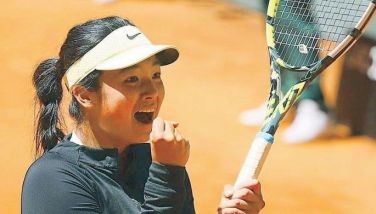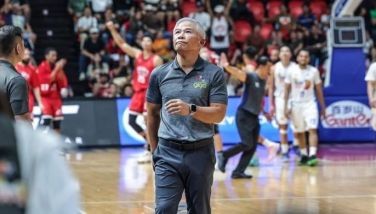Job security vs the world
Thirdy Ravena’s decision to play in Japan’s B.League stirred up a hornet’s nest of opinions and emotions. Coupled with the whispers that Greg Slaughter would seek a chance at joining the NBA G-League, and the reprimand incoming PBA prospect Isaac Go received, basketball fans are now receiving more insight into the stratification of basketball in the Philippines. It also sheds light on the varied directions the sport is taking.
Filipinos have been playing basketball overseas for decades. As early as the 1950’s, Bill Russell and KC Jones supposedly had a pair of Filipino brothers as teammates at the University of San Francisco. Of course, considering how young the NBA was at the time, not all amateur players would have thought that they had the talent to play professionally. Also, immigrant parents almost always pushed their family trade to become doctors, lawyers, bankers and so on. At the very least, they were persuaded to choose a relatively safe livelihood, or put up a business like a grocery store. Dutiful children, inundated with stories of their parents’ sacrifice to give them a better life, naturally obeyed. Even before that, athletes of Filipino heritage were already contributing to other countries. Victoria Manalo (aka Vicki Draves), won two gold medals in diving in the 1948 Olympics.
For the last 30 years, meanwhile, the OFW explosion has resulted in mixed-race Filipino children succeeding in sports. From car racing to figure skating, they’ve competed for the country of either parent. In basketball, some came home to play as Fil-Ams in the defunct Metropolitan Basketball Association or the PBA. Parallel to this, Filipino coaches have taken over national teams of several countries not only in Southeast Asia, but beyond. Filipino basketball players have become known as the best players in ASEAN, by far, but have struggled to regain dominance in the continent.
Younger players like Thirdy Ravena have been extremely fortunate to come up during Philippine basketball’s renaissance. Improved conditioning, more travel for training, frequent exposure to NBA talent and other factors have accelerated their growth. The globalization of media has also given them greater knowledge of what is out there, and the wider basketball landscape. There are many leagues that were not there just 30 years ago. The B.League itself just started out four years ago with the merger of Japan’s strongest basketball entities, the Japan Basketball Association and National Basketball League. Then again, Filipino rugby players have been playing in Japan for at least a decade.
There is also a larger, sociological factor. The so-called millennial generation has shown a greater tendency to eschew the traditional tentpoles of previous generations’ achievement. They are less likely to buy cars, put down roots, or stay in one place. They lean more towards exploration and experimentation and a nomadic lifestyle, choosing work that allows them to be or go wherever they want to be, instead of plunking themselves down wherever the work is. And with the necessitated work from home trend, they feel even more emboldened to go out there. Even in the Philippine business environment, in the last 25 years, the average time before employees or potential managers change jobs has gone down from five years to three years to two. Entrepreneurs are on the rise.
Ravena’s departure will start a trend of more college-level basketball players leaving the Philippines to play overseas. First, they will be exposed to a different culture. They will learn how other countries organize and play the game. They will get paid well. And they will increase their own value. It will be a great experience for them overall. Besides, Japan is only a few hours away by plane, with no substantial time difference. And technology makes it easier to keep in touch with everyone back home.
Now what about the PBA? Technically, the league cannot stop players from playing overseas. That would be restraint of trade. The NBA once tried to restrict underaged players from playing professionally, until Spencer Haywood convinced the courts that it was the only way he could support his family. The PBA is a great organization, and is a very strong one. It can position itself as the safety net, the secure place of employment for future players. It simply has to be united in that regard. If it later issues prohibitions against players manipulating where or when they will be drafted, all its teams have to follow. Bear in mind that the league has granted clemency to players it has banned before.
What we foresee is that players who seek long-term stability and want to have families already, will automatically choose the PBA, and that is an ideal choose. But we are also seeing players who seek to expand their life experience, live in a different culture, and earn in a foreign currency, go for the adventure. The two are not mutually exclusive. The two don’t have to be at odds.
- Latest
- Trending































